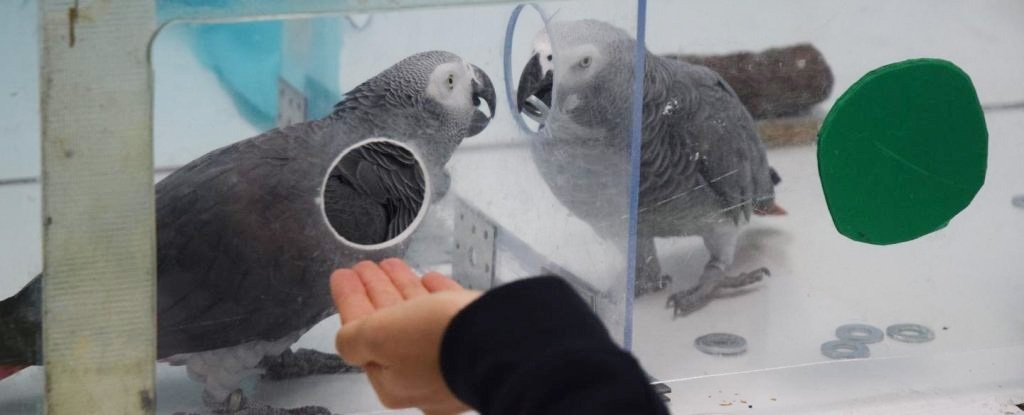MI weekly selection #358

Parrots appear to altruistically help each other out
Researchers filmed one African grey parrot helping another get a reward, an act of altruism they say hasn’t been demonstrated before in birds. “We found that African grey parrots voluntarily and spontaneously help familiar parrots to achieve a goal, without obvious immediate benefit to themselves,” said Desiree Brucks, co-author of the study.
Homo erectus arrived on Java much later than thought
Homo erectus arrived on Java from mainland Eurasia about 500,000 years later than once thought, according to a study that dated volcanic material around where fossils were found. It may have taken longer in part because the species didn’t have skills needed to cross the sea.
Venusian volcanoes may be active
The presence of olivine, a mineral found following recent volcanic activity, may point to such activity on Venus. Researchers looked at Venus Express spacecraft data that indicated olivine was present in the planet’s lava flows, suggesting the activity was much more recent than earlier thought.
Infected shrews might be transmitting encephalitis virus in Europe
Borna virus has probably been infecting humans for decades and might be the cause of a rash of unexplained, fatal encephalitis cases in areas of Germany, Austria and Switzerland, where the virus is endemic. The virus causes encephalitis in humans, sheep and ostriches, but the bicolored white-toothed shrew is a natural reservoir that doesn’t appear to suffer symptoms, and a recent study points to contact with shrews caught by pet cats as possible sources of illness.
Acute sleep loss linked to higher blood tau levels
Healthy young men with acute sleep loss had a 17% average increase in blood levels of tau protein — which is associated with Alzheimer’s disease — compared with an average 2% gain in blood tau concentrations among those with normal sleep, according to a small study in the journal Neurology. However, more studies are needed to determine whether elevated blood tau among those with acute sleep loss indicates tau removal or accumulation in the brain, said researcher Jonathan Cedernaes.